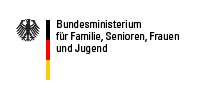AID:A-Competence Team: Socialmonitoring
The Social Reporting Competence Team examines dimensions of social inequality and diversity from a life-course and methodological perspective. Our work serves two key objectives. First, we develop and provide indicators of social structure, socioeconomic status, living arrangements, and identity for analyses using AID:A data. This includes the construction of nationally and internationally comparable variables on demographic characteristics, resource distribution, opportunity structures, and the utilization of welfare state and social services—critical factors shaping individual development and social participation. Second, we conduct empirical research on data quality, particularly in relation to social disparities and inequalities.
Our theoretical framework integrates two core perspectives. The first builds on an expanded concept of living conditions, combined with multidimensional approaches in deprivation and well-being research. This perspective underscores the complexity and interdependence of socioeconomic, social, and cultural contexts in which individuals develop and interact, acknowledging that multiple disadvantages can reinforce each other over time and across the life course. The second perspective draws on survey methodology, exploring how social disparities and inequalities influence participation and response behavior in surveys. This is particularly relevant in research on children and adolescents, where significant methodological challenges and research opportunities exist.
Based on this conceptual and theoretical foundation, our work focuses on two main areas:
(1) Advancing internationally comparable, multidimensional, and longitudinal indicators of social structure, socioeconomic status, and living arrangements.
(2) Conducting research and publishing on data quality issues, with a focus on how socio-structural and socioeconomic factors affect survey participation and measurement quality in the longitudinal household study AID:A
Neurath, Otto (1931): Empirische Soziologie. Wien
Nussbaum, Martha/Sen, Amartya (Hrsg.) (1993): The Quality of Life. Oxford
RatSWD (Rat für Sozial- und Wirtschaftsdaten) (2023). Standardfragenkatalog zur Erhebung soziodemographischer und krisenbezogener Variablen. (RatSWD Output Series, 7. Berufungsperiode Nr. 4b). Berlin. https://doi.org/10.17620/02671.76 (last access: 04/02/2025).
Zapf, Wolfgang (1984): Individuelle Wohlfahrt: Lebensbedingungen und wahrgenommene Lebensqualität. In: Glatzer, W.; Zapf, W. (Hrsg.): Lebensqualität in der Bundesrepublik. Frankfurt a.M.: Campus.
A general overview of AID:A publications can be found here
Deutsches Jugendinstitut (Hrsg.) (2024): AID:A 2023 Blitzlichter. Zentrale Befunde des DJI-Surveys zum Aufwachsen in Deutschland. Bielefeld: wbv Publikation. doi.org/10.3278/9783763978007. pdf-download here
Susanne Kuger, Sabine Walper, Thomas Rauschenbach (Hrsg.) (2021): „Aufwachsen in Deutschland 2019. Alltagswelten von Kindern, Jugendlichen und Familien“. Print-publication and pdf-download (website wbv-Verlag)


